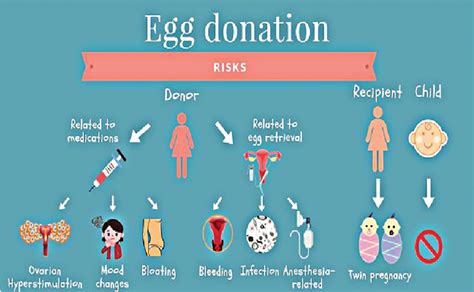The process of becoming an egg donor is a complex and highly regulated one, involving extensive medical and psychological screening. This rigorous process is in place to ensure the health and well-being of both the egg donor and the recipient, as well as to maximize the chances of a successful pregnancy and a healthy baby. As part of this process, potential egg donors are required to complete a comprehensive application, which includes detailed questions about their medical history, family medical history, lifestyle, and personal characteristics.
While the temptation to manipulate or distort the truth on an egg donor application may be strong, particularly for individuals who are eager to be selected as donors, the consequences of lying on an egg donor application can be severe and far-reaching. In this article, we will explore five potential consequences of dishonesty on an egg donor application.
The Risks of Dishonesty: 5 Consequences Of Lying On Egg Donor Application

1. Disqualification from the Egg Donor Program
One of the most immediate and obvious consequences of lying on an egg donor application is disqualification from the egg donor program. If a potential donor is found to have provided false or misleading information, they will likely be disqualified from the program and may not be eligible to reapply. This is because egg donation programs rely on the accuracy and honesty of the information provided by potential donors to ensure the health and well-being of both the donor and the recipient.
2. Delayed or Failed Pregnancies
Another potential consequence of dishonesty on an egg donor application is delayed or failed pregnancies. If a donor provides false information about their medical history or family medical history, it may not be possible to identify potential genetic disorders or health risks that could impact the success of the pregnancy. This could lead to delays or failures in the pregnancy, which can be emotionally and financially devastating for the recipient.
3. Health Risks for the Donor
In addition to the risks associated with delayed or failed pregnancies, dishonesty on an egg donor application can also pose health risks for the donor themselves. If a donor provides false information about their medical history or health status, they may not receive the necessary medical screening or care to ensure their own health and well-being. This could lead to serious health complications, including infection, injury, or even death.
4. Emotional and Psychological Trauma
The consequences of dishonesty on an egg donor application can also be emotional and psychological. If a donor is found to have provided false information, they may experience feelings of guilt, shame, and anxiety. They may also experience emotional trauma if they are forced to confront the consequences of their dishonesty, including the potential harm caused to the recipient or the baby.
5. Legal Consequences
Finally, dishonesty on an egg donor application can also have serious legal consequences. If a donor is found to have provided false information, they may be liable for damages or other legal penalties. In extreme cases, dishonesty on an egg donor application could even lead to criminal charges, including fraud or negligence.

Conclusion
As we have seen, the consequences of dishonesty on an egg donor application can be severe and far-reaching. From disqualification from the egg donor program to delayed or failed pregnancies, health risks for the donor, emotional and psychological trauma, and legal consequences, the risks associated with dishonesty are significant. It is essential for potential egg donors to provide accurate and honest information on their application, not only to ensure their own health and well-being but also to maximize the chances of a successful pregnancy and a healthy baby.






What are the requirements for becoming an egg donor?
+To become an egg donor, you must meet certain requirements, including being between the ages of 21 and 35, having a healthy BMI, and being a non-smoker. You must also pass a comprehensive medical and psychological screening.
How long does the egg donation process take?
+The egg donation process typically takes several months to complete, from initial application to retrieval of the eggs.
What are the risks associated with egg donation?
+The risks associated with egg donation include infection, injury, and emotional trauma. Donors must also be aware of the potential risks associated with the use of fertility medications.
